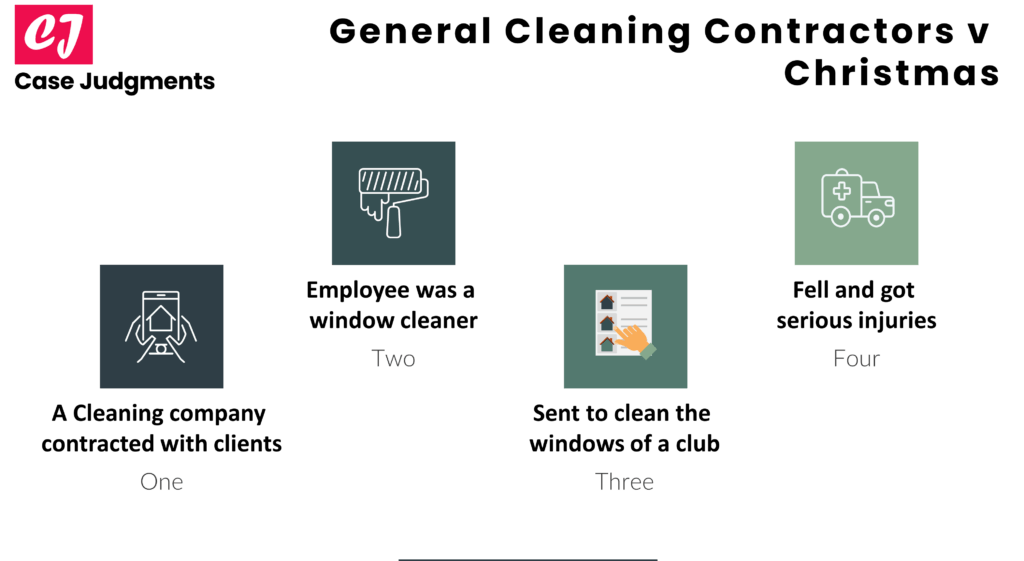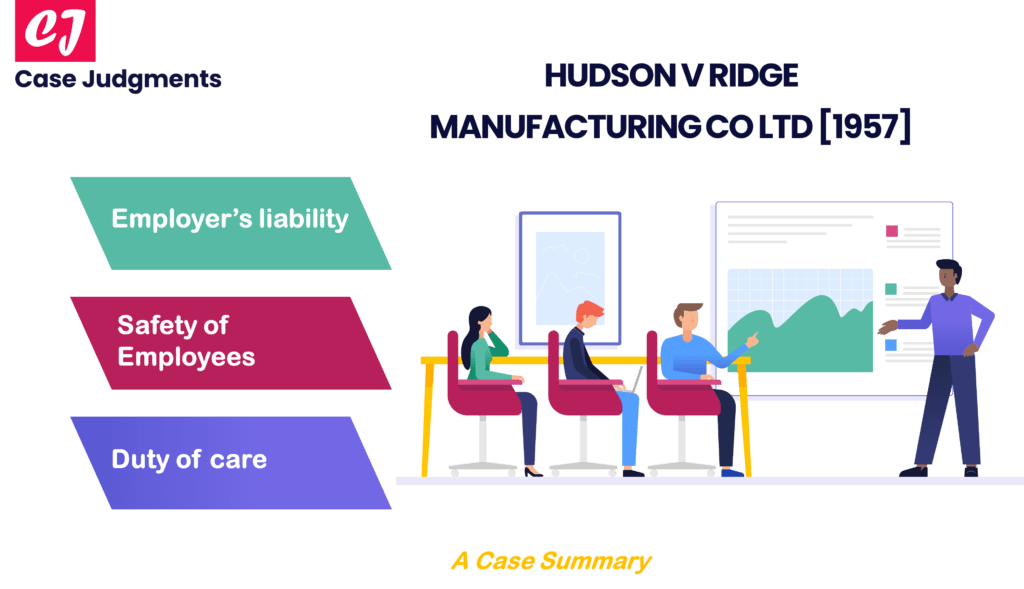General Cleaning Contractors v Christmas is a UK tort law case concerning the duty of an employer to devise a safe system of work for his employees. Given below are the case details:
| Case name & citation: | General Cleaning Contractors Ltd v Christmas [1953] AC 180; [1952] 2 All ER 1110 |
| Court and jurisdiction: | House of Lords, England & Wales |
| Decided on: | 10 December 1952 |
| The bench of judges: | Earl Jowitt, Lord Oaksey, Lord Reid, and Lord Tucker |
| Area of law: | Employer’s liability; civil liability for safe systems of work |
Facts of the case
The claimant was a window cleaner who had worked for the defendant company for twenty years, a company whose business was to contract with the occupiers of buildings to clean their windows. On one occasion, the defendants sent the claimant to clean the library windows of a club. The approach which was adopted by the defendants involved the window cleaner standing on the sill outside the window to clean the panes that could not be reached from the inside. The claimant first cleaned the section of the window that could be reached from the inside, and then, as per his employer’s usual practice, he got out onto the sill, which was only 6 1/4 inches wide and around 27 feet above the basement. While he was cleaning the windows, he had to put his hand between two window sashes, but when one sash closed against the other for unclear reasons, his hand was crushed, and he fell because it was his only means of support.
Issue
Were the employers liable for the injuries sustained by the workman?
Judgment of the Court in General Cleaning Contractors v Christmas
In the instant case, the House of Lords decided that it is the duty of the employer to assess the problem, develop a proper system, instruct his employees on what they must do, and provide the necessary equipment. The employers had failed to fulfill their duty to provide a sufficiently safe system of work because they had left it up to individual workers to take safeguards against a clear and obvious danger.
The judges further stated that employers cannot be exempted from this duty by the fact that their workmen are experienced. The possibility that sashes will unexpectedly close, as they appear to have happened in this case, may not occur very often, but when it does, if the workman is steadying himself on a handhold, his fall is practically inevitable. Therefore, the employers should have taken precautions to solve this problem and shouldn’t have left it to the workman. It could have been solved by giving proper instructions to the workman and by the provision of appropriate tools/equipment.
Thus, the defendant company was held liable as it failed to provide a safe system of work for its employees.
List of references:
- https://vlex.co.uk/vid/christmas-v-general-cleaning-792877981
- https://rmpartners.co.uk/wp-content/uploads/2023/03/RMP-Risk-Control-Safe-Systems-of-Work-Safe-Use-of-Ladders-Stepladders.pdf
- https://swarb.co.uk/general-cleaning-contractors-ltd-v-christmas-hl-1953/
You might also like:
More from tort law:




